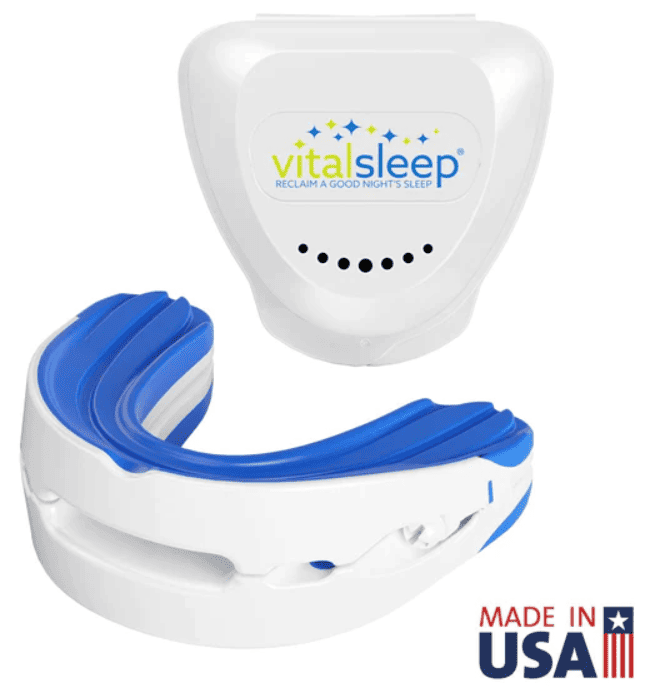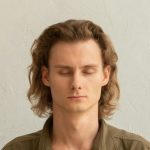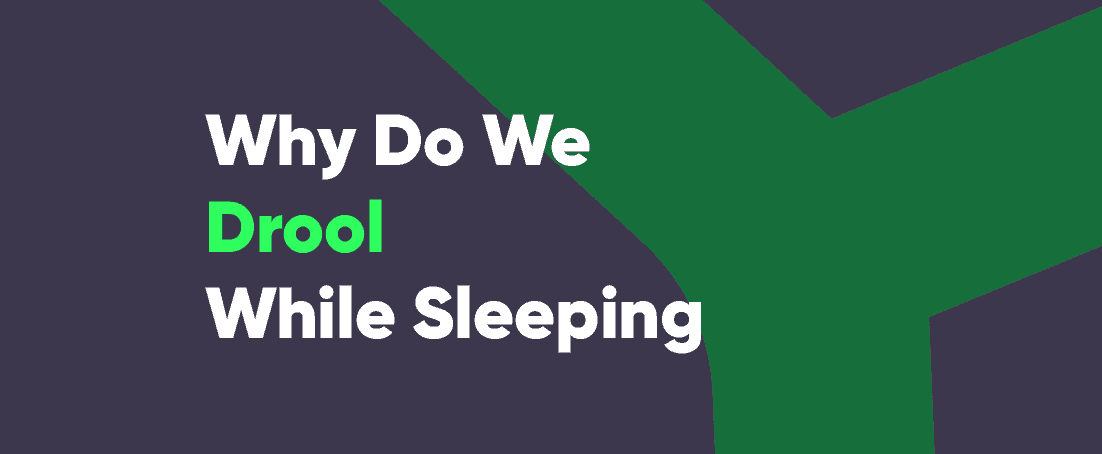Waking up to find your pillow wet is one of those embarrassing surprises you never look forward to. Occasional drooling shouldn’t worry you, as it is a common occurrence.
Learning what causes drooling and what you can do to manage it helps prevent bad breath, dehydration, and embarrassment caused by it. Read on to learn the factors triggering drooling in sleep and our tried and tested tips to fend it off effectively.
Key Takeaways
- Drooling during sleep is a common occurrence and is usually harmless.
- There are many causes of drooling during sleep, including sleeping position, nasal congestion, and certain medications.
- If you are concerned about drooling, you should see a doctor to rule out any underlying medical conditions.
- There are a few things you can do to reduce drooling, such as sleeping on your back, staying hydrated, and using a CPAP machine.
Table of Contents:
Drooling While Sleeping: What is It Really?
Drooling, also called slobbering or driveling, happens when saliva flows out of the mouth involuntarily. The excess saliva usually flows out during sleep, resulting in dry mouth and bad breath. This can happen due to multiple reasons, such as too much production of saliva, mouth breathing, swallowing difficulties, or your sleep position.
Drooling sometimes results from certain medications or underlying health conditions, which is why proper medical attention is advised if you notice the problem is developing into a serious one.
Chronic Drooling In Your Sleep
Certain neurological issues and conditions, medications, allergies, and sleep disorders can develop chronic drooling, also known as sialorrhea. Constant drooling issues during sleep can eventually turn into a bigger issue, such as sore mouth corners, known as angular cheilitis. The excess saliva can also get aspirated into the lungs, causing pneumonia.
The treatment of chronic drooling is crucial to curb it from turning into a serious issue. Your healthcare provider will advise on meds, therapy, or surgery, depending on the severity of drooling.
What Causes Drooling or Why Do I Drool?
Drooling occurs when excess saliva spills out of the mouth during sleep due to any reason. The physiological mechanisms such as saliva buildup due to decreased mouth movement and changes in posture might be the culprit. However, some medical conditions or medications might also play a role in increasing saliva production during sleep.
If you find yourself asking, “why do I drool” every morning, here are some of the most common reasons why your pillow is wet in the morning lately.
Sleep Position and Saliva Build-up Due to Gravitational Pull
The silent and most probable culprit behind drooling while sleeping is gravity. Imagine how sleeping on your side or stomach can pool the saliva to the lowest point (your lips and the inner side of the cheek, in this case). Eventually, it flows out of the mouth due to gravity. On the contrary, sleeping on your back keeps the excess saliva inside your mouth, guiding it down to your throat.
To reduce the chances of drooling, adopting a proper sleeping position might be a simple solution. Sleep on your back at a slight incline to further prevent slobbering.
Nasal Congestion or Dry Mouth
If the nasal passage is constricted due to congestion, we start breathing through the mouth instead of our nose. The nose is designed for an efficient breathing mechanism. It has filters that keep the dust and bacteria away, and it moistens the air before it reaches the throat.
The difference in mouth vs nose breathing is that mouth breathing imbalances this mechanism, and the filtration and moistening system takes a backseat.
Excess saliva, when it enters the scene, escapes the mouth as the mouth isn’t absorbing it effectively. As a result of congestion, the saliva increases, and nighttime drooling happens.
GERD and Saliva Overflow
GERD, or gastroesophageal reflux disease, can be one of the reasons for drooling. The condition causes weakness in the reflexes that could guide one to swallow. As a result, the excess saliva produced due to acid reflux pools in the mouth and flows out rather than making its way down the throat.
The constant acid reflux in GERD irritates the esophagus, causing inflammation. The best sleeping position for GERD to mitigate acid reflux is to lay down on your left side. This position helps prevent stomach acid from flowing back into the esophagus. As a result, the excess saliva doesn’t pool in the mouth during sleep, and drooling is reduced. Elevating your upper body further defies gravity and keeps the saliva inside the mouth.
Medication Side Effects that Make You Drool When You Sleep
A medicine that you regularly take might be contributing towards drooling. The composition of these medications meddles with saliva production or affects the swallowing reflexes. Some of these medicines are:
- Antipsychotic medications: Drugs like clozapine and olanzapine affect saliva production, increasing the occurrence of drooling in sleep.
- Cholinergic agonists: These medicines are prescribed to patients with Alzheimer’s and myasthenia gravis. They increase saliva production, leading to drooling.
- Certain antibiotics: Some antibiotics stimulate the pooling of excess saliva in your mouth as a side effect, resulting in nighttime drooling.
- GERD medications: Not just the condition itself, but proton pump inhibitors and H2-receptor blockers, used for treating GERD, can also impact saliva production and propel you to drool during sleep.
- Medications for sleep apnea and teeth grinding: Some patients report excess saliva production due to the use of CPAP machines and meds for sleep apnea or teeth grinding. This also causes slobbering while sleeping.
Always consult your healthcare provider before stopping a medication if you suspect it is causing you to drool excessively. The practitioner will suggest alternatives or adjustments according to your condition to mitigate the side effects.
Dysphagia and Drooling: The Swallowing Struggle
Swallowing disorder, medically known as Dysphagia, is a condition where you have trouble gulping down the excess saliva produced in your mouth. People with neurological disorders like Parkinson’s, Multiple Sclerosis, Cerebral Palsy, or Stroke often face deterioration of muscles and nerves responsible for swallowing. As a result, they develop dysphagia, where moving food and liquid from the mouth to the stomach becomes a challenge.
Drooling caused by relaxed swallowing reflexes can be managed. Seeking medical advice is important if you are suffering from dysphagia. The condition can be effectively managed by fixing the root cause, like adjusting medications, swallowing therapy, and lifestyle changes. If the condition hasn’t developed into a serious one, simply sleeping on your back might resolve nighttime drooling in Dysphagia patients.
Health Conditions, Like Sleep Apnea
Sleep apnea and drooling are intertwined conditions, creating a vicious cycle that becomes a challenge. With sleep apnea, the obstruction in the airway causes breathing pauses during sleep. The sufferer resorts to mouth breathing, which leads to dryness in the mouth. In the course of events, the saliva production in the mouth is shifted into high gear, causing drooling when the breathing mechanism resumes.
To fix the sleep apnea-drooling cycle, the use of CPAP machines or certain medications is advised. These keep the mouth moisturized and improve breathing patterns, hitting two targets with one arrow. As a result, the treatment to fix sleep apnea can help tackle the drooling issue simultaneously.
7 Tips How To Stop Drooling in Your Sleep
There are highly effective practical solutions for excess drooling. The adjustments can be as simple as changing your sleep position, addressing nasal congestion, or seeking medical attention for suspected underlying issues. Identifying the cause will help you target the issue and minimize or even eliminate nighttime drooling effectively. Let’s take a deeper look into the list of tips on how to stop drooling.
Tip 1: The Optimal Sleep Position to Stop Drooling
As stated above, sleeping on your back can be the simplest solution to address nighttime drooling. It is the most effective sleeping position, unlike positions that otherwise instigate drooling due to gravitational pull. When we sleep on our back, it allows swallowing the excess saliva that escapes the mouth in a stomach or side-lying position.
Side sleepers or stomach sleepers can transition to a back sleeping position in the following ways:
- Firstly, choose a supporting mattress that helps align your spine to sleep comfortably on your back.
- Elevating your head and neck helps in a proper spine alignment, for which you can try using a wedge pillow.
- You can further be in a comfortable position by placing a pillow beneath your knees as it eases the tension in your lower back while helping you stay in the position without rolling on your side and stomach.
If you were always a habitual side or stomach sleeper, transitioning will take time. Gradually acclimatizing to the back position needs patience and consistency.
It is important to note that the back sleeping position might not suit everyone, such as pregnant women or individuals suffering from GERD, where side sleeping provides comfort. Tailored guidance is advised for individuals who cannot adopt a back sleeping position.
Tip 2: Clear the Air: Remedies for Nasal Congestion
There are many effective home remedies to get relief from nasal congestion and stop relying on mouth breathing. You can also make some lifestyle adjustments to provide relief from drooling.
- Firstly, use saline nasal sprays or rinses to clear the nasal passages. Inhaling steam is known to help with congestion. You can use a facial steamer, a bowl of hot water, or a hot mist humidifier to moisturize the airways. To stimulate nose breathing instead of mouth breathing, use a combination of ways to ease nasal congestion and mouth taping. Browse our hand-picked list of best mouth tapes to pick the right one for you.
- You can also try using extra pillows to elevate your head. Doing so will alleviate a stuffy nose.
- We also recommend the use of nasal strips to facilitate easy nose breathing through the night.
- If you are prone to allergies, avoiding known allergens such as dust or pet dander prevents congestion flare ups effectively.
Some lifestyle changes can go a long way to minimize congestion:
- Keep yourself hydrated to keep the nasal passages moisturized, promoting better sleep quality.
- Avoiding smoking also helps avoid nasal congestion.
All of the suggested remedies and lifestyle changes can significantly reduce nasal congestion, decreasing the overreliance on mouth breathing that leads to drooling.
Tip 3: GERD Management: Dietary and Positional Adjustments
The drooling issue goes hand in hand for individuals suffering from GERD.
- Make dietary adjustments to help mitigate the continuous acid reflux.
- Avoid spicy, acidic, and fatty meals to ease GERD symptoms.
- While what you eat matters, when you eat, it is also significant. Time your meals at least four hours before bedtime, and take smaller, more frequent meals to manage acid reflux.
If we talk about sleeping positions for drooling, the highly recommended back sleeping position might not work well with GERD sufferers. The back position will stop drooling, but as the acid keeps creeping up from the esophagus, they will stay uncomfortable, not being able to sleep.
They should instead sleep on the left side while keeping their upper body elevated to keep the saliva from flowing out of the mouth and help with acid reflux simultaneously. The goal is to stay in the best sleeping position for GERD while reducing the chances of drooling as much as you can by keeping the head and neck elevated.
Tip 4: Medication Review: Consulting with Healthcare Providers
If you are currently on some sort of medication and experiencing sleep drooling, you must consult with your healthcare provider. According to a study by PubMed, antipsychotics, particularly clozapine, and cholinergic agonists used for treating dementia of the Alzheimer’s type and myasthenia gravis cause drooling. If the medications you are using are triggering excessive saliva production and drooling, they could be reviewed by your healthcare provider who will make the required adjustments to manage the issue.
Do not stop taking medicines if you suspect them to be a leading cause behind nighttime drooling, as it will negatively impact your primary disease. Seek professional guidance before making any changes to medications, as only a professional can assess medication-related factors and make informed decisions for potential adjustments.
Tip 5: Addressing Dysphagia: Therapies and Exercises
As explained earlier, dysphagia refers to a swallowing difficulty that causes excessive drooling during sleep. Several therapies and exercises can help enhance the swallowing function and effectively reduce drooling. Some of them are:
- Mewing: Mewing is a tried and tested technique recommended to improve facial posture. It involves resting your tongue against the roof of the mouth. Mewing to correct the tongue posture can resolve swallowing related issues by strengthening the muscles and improving your oral posture.
- Swallowing Therapy: You can also consult with a speech language pathologist who will recommend exercises that target muscle strengthening. These exercises effectively address the swallowing difficulties and prevent drooling while you sleep.
- Postural Adjustments: Simple adjustments like tucking the chin during swallowing help refine the swallowing function, reducing nighttime drooling.
- Mandibular Devices: Mandibular Advancement Devices, simply known as mouthpieces, reposition the jaw and stabilize the tongue while you sleep. Using them improves the swallowing function and eventually reduces drooling.
- Hydration: Keeping yourself hydrated makes your saliva thinner, making it easier to swallow.
If you suffer from dysphagia, consulting healthcare professionals, such as speech-language pathologist or otolaryngologist, is important. They conduct comprehensive evaluations and create personalized treatment plans to tackle individual swallowing issues and dysphagia-related drooling medically.
Tip 6: Sleep Apnea Interventions: From Oral Appliances to CPAP
Sleep apnea is one of the potential triggers for nighttime drooling. Sleep apnea care and management include the use of CPAP machines and oral appliances.
Continuous Positive Airway Pressure (CPAP) Machines
A CPAP machine functions by delivering a continuous stream of air into the airway through a mask worn over the nose and mouth. The gentle but constant pressure keeps the airway unobstructed, effectively preventing breathing pauses and snoring, the characteristic symptoms of sleep apnea.
Drooling and sleep disruptions caused by sleep apnea are also addressed with the continuous use of a CPAP machine through the night. Using a humidifier along with the CPAP machine keeps the airway moisturized, further combating mouth dryness that triggers drooling.
Some people may find it hard to adjust to the CPAP mask. Adjusting the tension of the mask straps can help with a comfortable and secure fit.
Oral Appliances (Mandibular Advancement Devices)
Oral appliances, including Tongue Stabilizing Devices (TSDs) and Mandibular Advancement Devices (MADs), are specifically designed to help individuals suffering from sleep apnea. They benefit those patients, in particular, who are intolerant to CPAP machines.
By gently moving the jaw forward and keeping the tongue stabilized, oral devices maintain a clear air passage, easing sleep apnea. They enhance the breathing pattern, mitigating the risk of airway blockage and subsequently managing excessive drooling at night.
CPAP machines and oral appliances work wonders to rectify sleep apnea and diminish drooling. However, you must seek guidance from your healthcare practitioner before using them. An expert healthcare provider follows a proper protocol for identifying the issue and recommending treatment. They will conduct a thorough assessment to determine the most suitable treatment and ensure proper fitting and usage of the recommended device.
A professional consultation further ensures personalized interventions, which guarantees optimal effectiveness and comfort while managing sleep apnea.
Gaining valuable insights into the features, effectiveness, and suitability of an appliance for individual needs is quite helpful. Understanding how mouthpieces work allows you to make an informed decision about picking the most suitable device for yourself. Read our VitalSleep Mouthpiece comprehensive review to learn why we rate it as the best mouthpiece for sleep apnea sufferers.

Provides Control of Jaw Position | Easy Boil-and-Bite Custom Fit. | Made Of Durable Material | Effective Sleep Apnea Relief | 60-Night Guarantee
100% MONEY-BACK GUARANTEE
Visit Vital SleepTip 7: Staying Hydrated Before Sleep
You should never ignore constant advice reminding you to stay hydrated. Adequate water intake is necessary as it influences the consistency of the saliva, leading to reduced drooling. Drinking water before bedtime maintains the thickness of saliva to a level that makes it easier to swallow.
Proper hydration also ensures the saliva remains fluid and makes its way back to the throat without accumulating inside the mouth. As a result, drooling episodes are mitigated.
When to Seek Professional Help: Beyond the Mattress
If nighttime drooling is accompanied by symptoms such as sudden weight loss, difficulty swallowing, or persistent coughing, an underlying condition may be causing it.
Excessive drooling may be a pointer towards a deeper concern, such as a neurodegenerative disorder, which often has impaired swallowing as a symptom. People diagnosed with Parkinson’s disease and Cerebral Palsy are more likely to drool while sleeping, as the deteriorated nervous system often impacts the salivary glands.
Other conditions like Epiglottitis, Bell’s Palsy, ALS, Huntington’s, stroke, or traumatic brain injury also cause difficulty in swallowing, pacing way for excessive drooling. Professional assessment and treatment for these diseases might be necessary if your healthcare provider suspects them.
Wake Up Dry and Take Control of Drooling
To sum up the advice given in this article, we can say that you can effectively manage drooling by learning the root cause of it. Implementing the suggested strategies to tackle the issue is highly recommended, and you can even try them in combination to address the issue in a better way. If you are contemplating the use of a mouthpiece to tackle sleep apnea related drooling, explore the list of our picked best mouthpiece for snoring to choose the right one for yourself.
From adjusting sleep positions and using products to address drooling to adopting lifestyle changes and considering proper hydration, each tip works wonders to reduce drooling. Embracing the strategies will help you overcome the issue of drooling, wake up dry, and ensure a restful night’s sleep.

